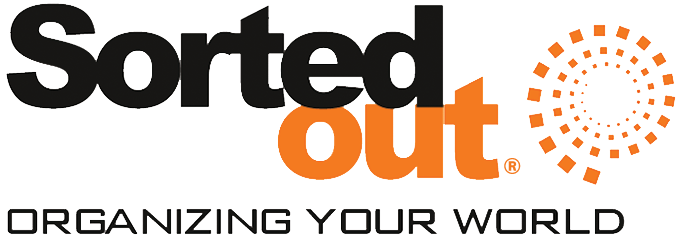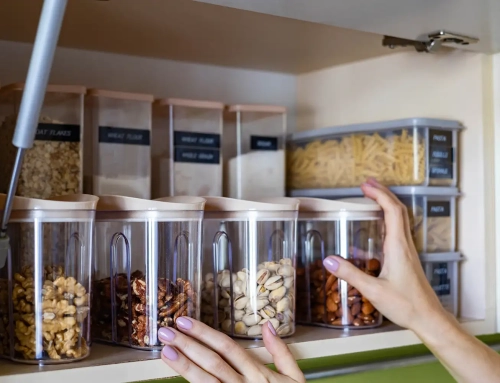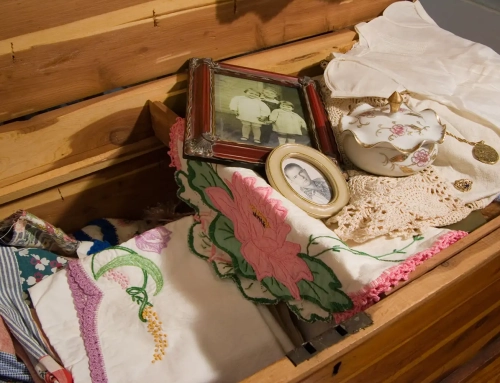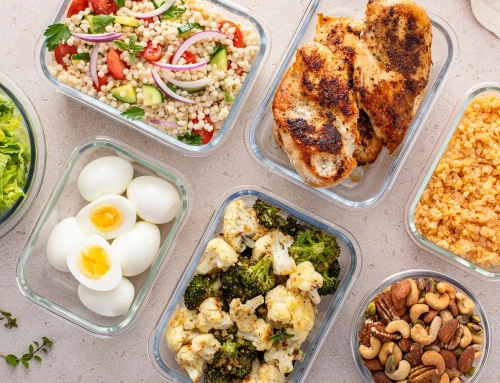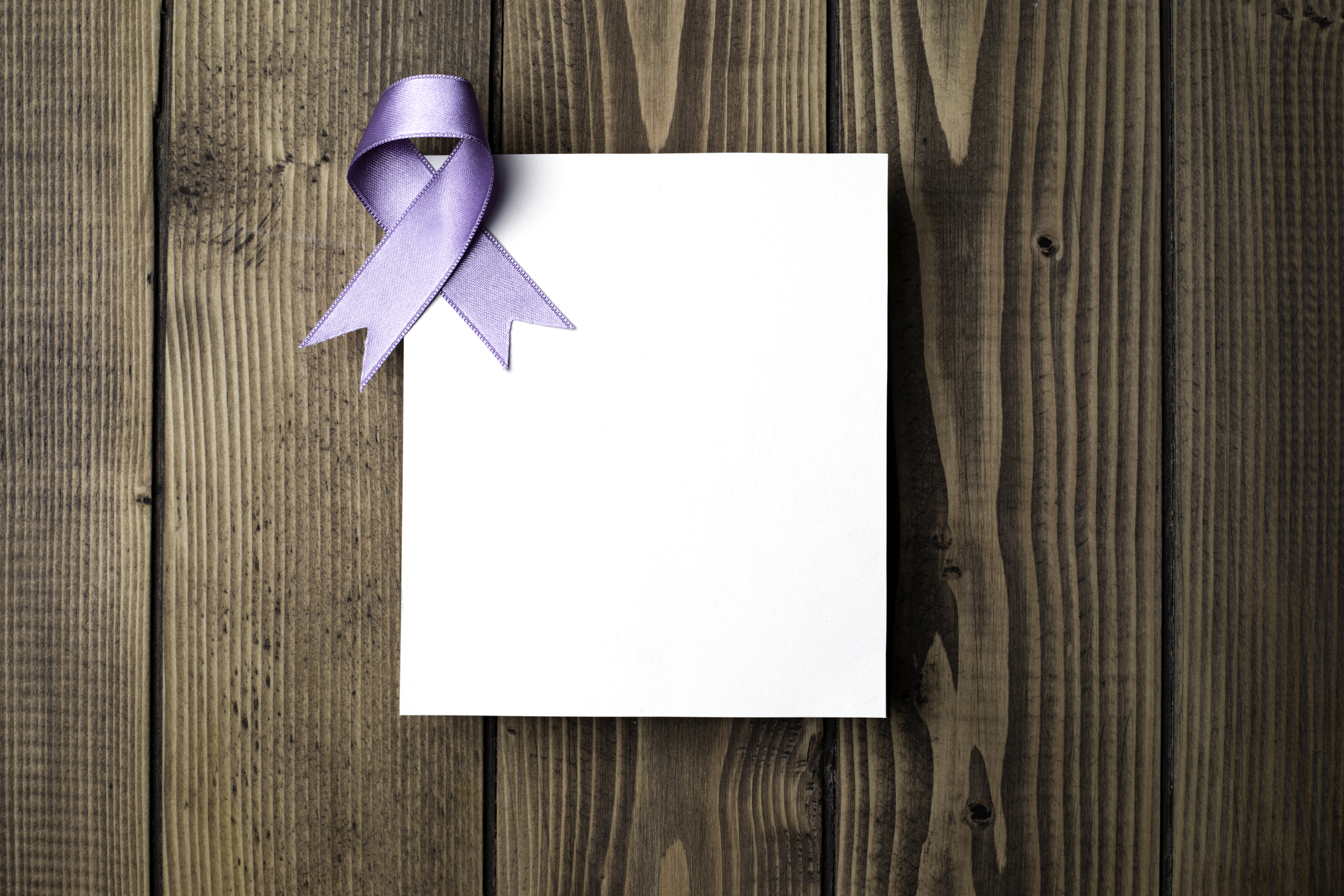
Organizing is important for all ages and stages of life and as we grow older, the more “stuff” we seem to accumulate. That’s why keeping up with your organization and remaining consistent over the years is important. But should you find yourself needing to help your loved ones with this task as they grow older, we’ve got you covered! Today we’re going to focus on organizing for Alzheimer’s and memory loss, to try and ease these typically difficult transition stages of life.
Step 1: Declutter
Forever our first recommendation: declutter! Clutter is bad for any brain (even the healthy ones) and you need a blank slate to start with. However, decluttering for someone other than yourself is a much more delicate process. Decision making for someone with a form of dementia can be very hard for them & decluttering can be hard to understand the need for it or the reason why they are having to make a decision to “get rid” of some of their belongings. It’s not unlikely that there will be some sort of “protest” during the process. This is why it’s so important to have a family member in charge, someone they love and trust, to help with the task of organizing for Alzheimer’s and memory loss.
If you run into a protest during the decluttering stage, here are some things you can try to help them make sense of it all:
- Explain to them why you are getting rid of things and belongings, and what exactly it is that you’re hoping to accomplish during this process. You will want to continue to repeat the what & why so they can remember what you told them.
- Go slow! It’s important to slowly remove items; rushing may make them feel overwhelmed and confused.
- Keep them involved in the process, so they still feel like they have some sort of control on what is said & done. You don’t want to make them feel unimportant or helpless.
- Guide them through making decisions and try to resist judging them. They need someone they know well, and someone they trust. This process can be very trying on them, so leading with patience and love is key.
- Move along in small increments to make the process more “digestible”. Instead of tackling a full room all at once, choose one area to start with (like a closet, a dresser, one shelf, etc.) This will keep your loved one from feeling too overwhelmed with the task at hand.
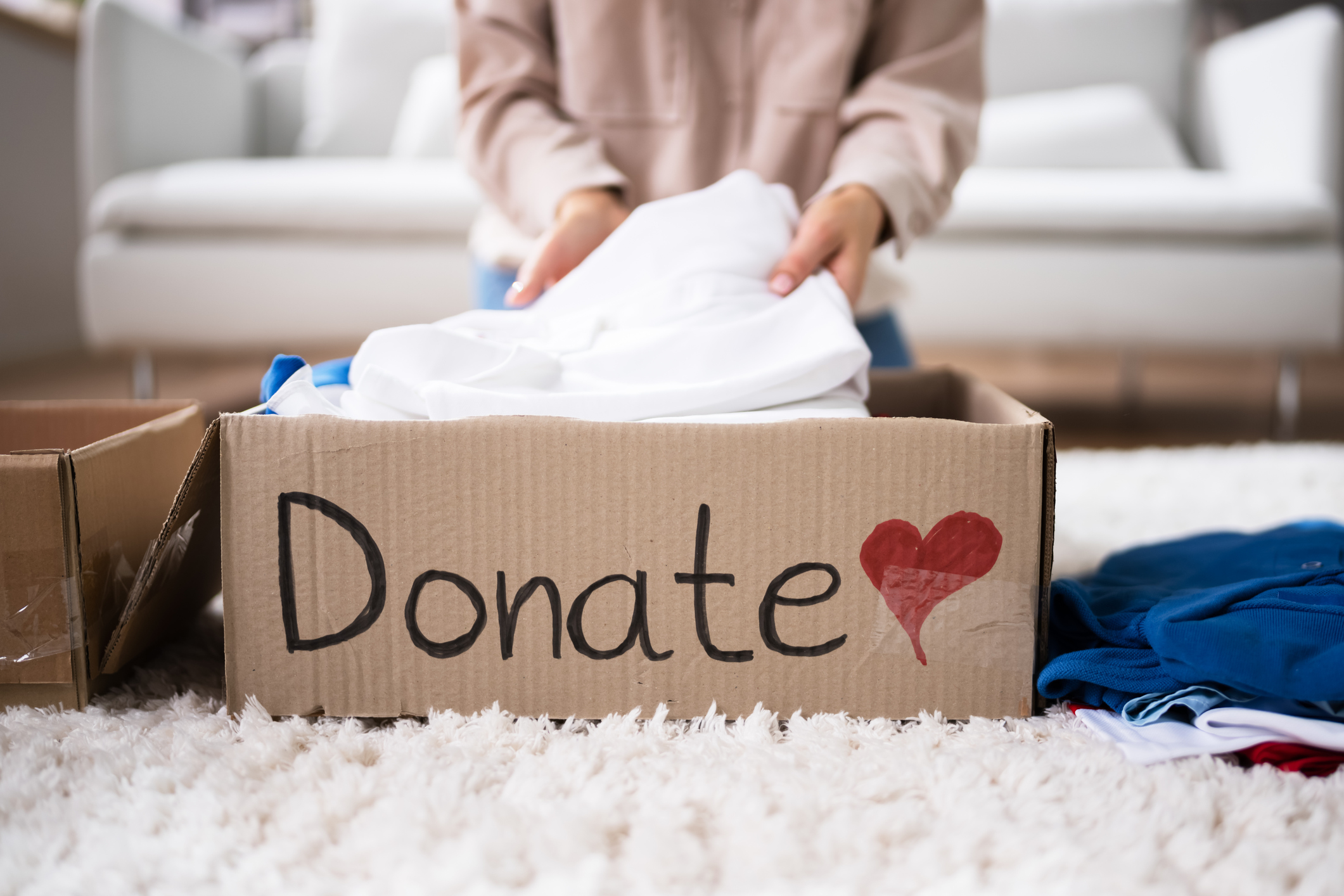
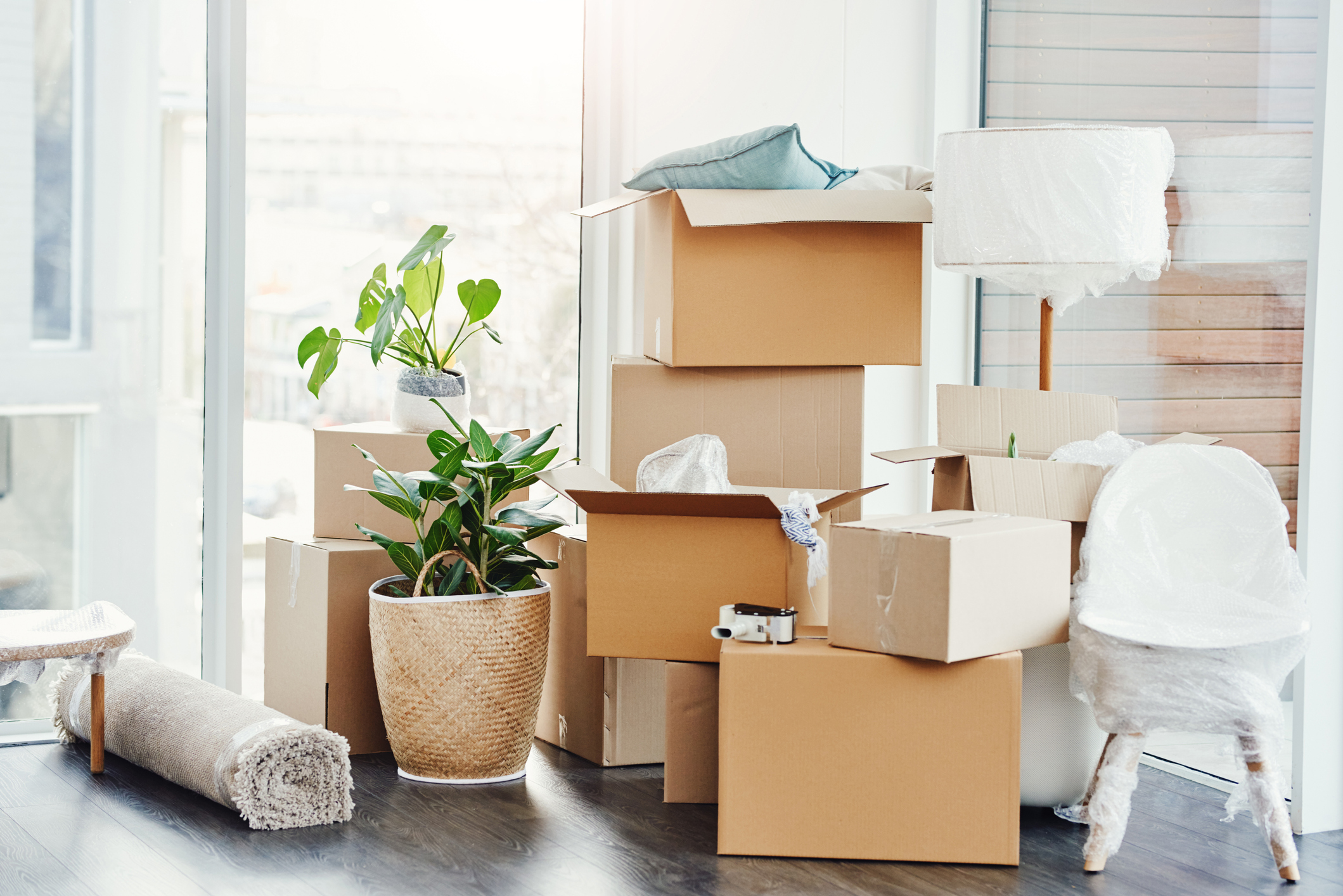
Step 2: Create safe and easily navigated spaces
Those with Alzheimer’s, dementia, and/or memory loss will struggle with spatial awareness so making sure the space you’re organizing and working in is easily navigated is incredibly important. Some things you can do to ensure a clean and clear working space include removing items from the floor and surfaces that don’t belong there (stacks of magazines or books, piles of mail, dirty clothes, etc.) You may want to move furniture around as well to plan a clear path of entry and exit while organizing and moving about the room. Consider marking hazards around the room/home for safety precautions, similar to babyproofing. Mark corners, edges, steps, and stairs, etc. with a bright tape.
Step 3: Label
We love labeling (no surprise there – we’re professional organizers, it’s practically in our blood! If possible, labeling would be our love language!) It becomes even more crucial when helping those with memory troubles. Make sure you are labeling everything – drawers, containers, shelves, etc. This helps during forgetful moments and assists in maintaining organization once complete. Having reminders throughout the home is a good idea too. Add reminders for anything that could potentially become a hazard, such as a stove, curling iron, etc. Place these reminders near the item where it can be easily seen, so they know to check that the item is turned off, unplugged, etc. Be as detailed as needed, treating it as if you are speaking to a person who has never seen this item before.

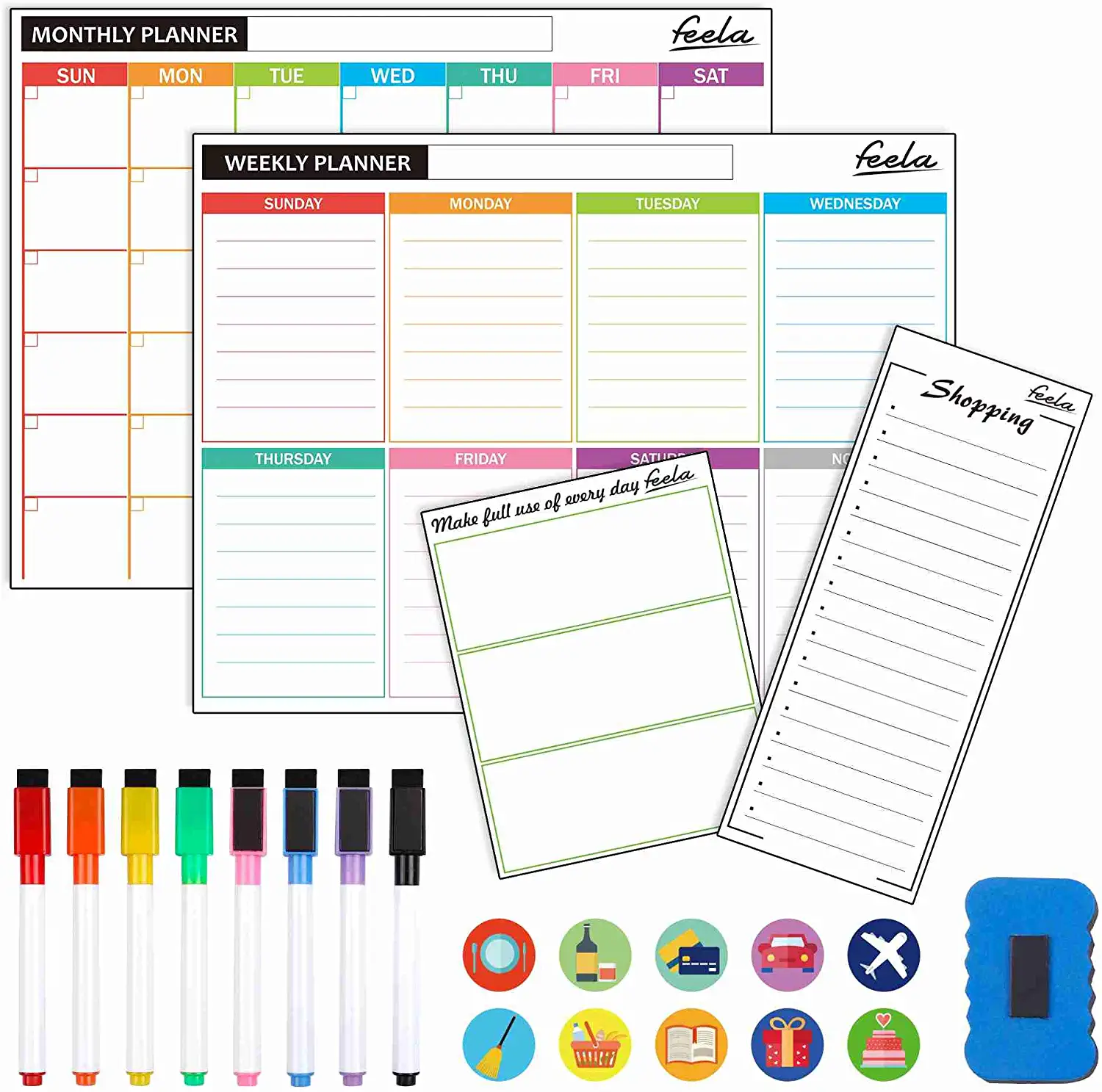
Step 4: Set up reminders
Additionally, you could do reminders for everyday tasks if you begin to notice your loved one struggling to do an everyday/common task. Consider leaving a checklist on the bedside table, sticky notes by the garage door, etc. Reminder boards are great for this, where you can add and remove items as they are completed. We suggest having a “reminder command center” where all important dates, events, and appointments are posted. You can also include daily checklists, hooks for keys, and emergency contacts listed along with the person’s name, relationship to them, and even a photograph. Calendars are helpful for this as well, and we recommend placing one in every common area (kitchen, living room, bedroom).
Not all challenges that come with memory loss are easily accomplished with organization, but it most certainly helps. A properly functioning and organized home is bound to make a huge difference in the lives of you and your loved ones. If this sounds like an incredibly daunting or impossible task, please don’t hesitate to reach out to us! Or – consider gifting our organization services this holiday season (a gift that everyone is sure to love!) We are here to help and would love to assist in making your daily lives easier. You can reach us at info@sortedout.com. If you try these tips, please let us know how it goes in the comments below!
Looking forward to hearing from you,
Tonia
